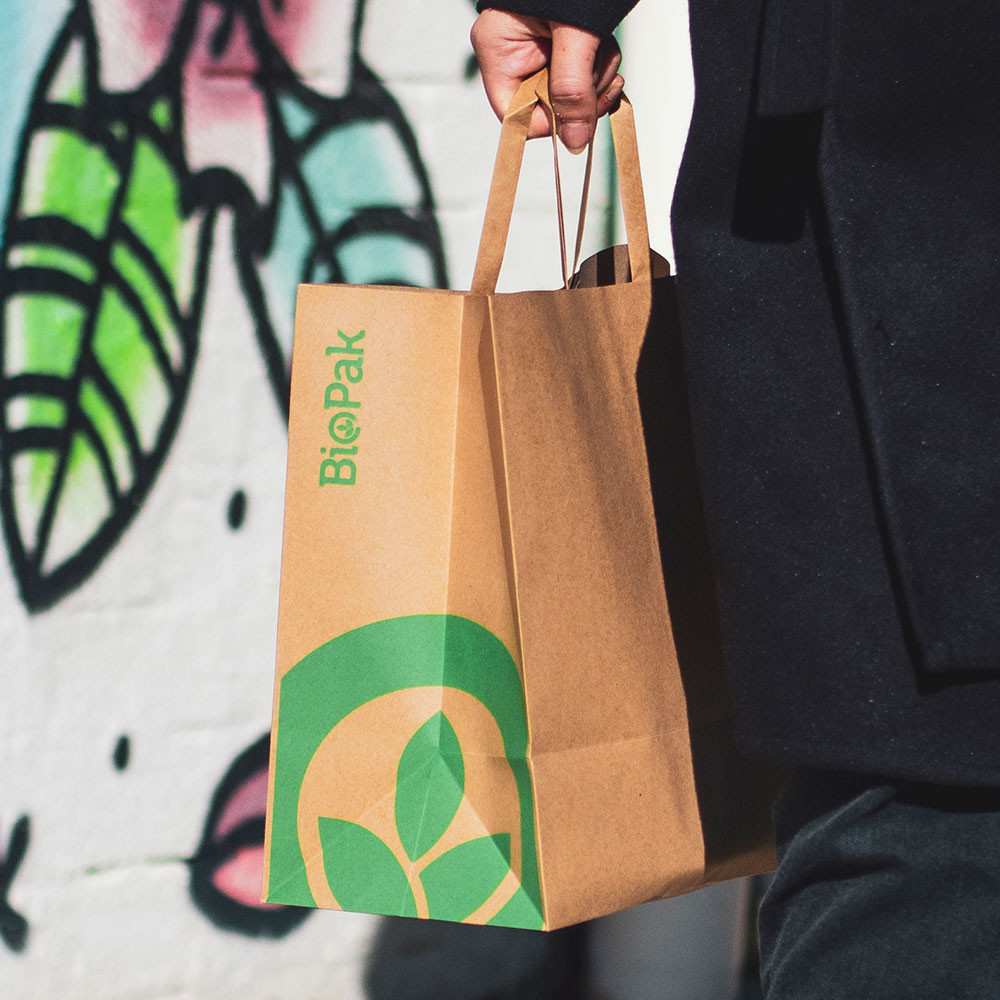
How to Stay Plastic Free with COVID-19
31st Mar 2020
Cafes are only offering takeaway – and they won't use your reusable cup. The world is splurging on hand sanitiser. Maybe you're worried about the virus spreading through loose produce at supermarkets. Being plastic-free is suddenly a lot harder. Here are some handy tips.

Choose Compostable
Support cafes that provide compostable cups, or suggest to your favourite local eatery that they do so. Yes, disposable cups are essential if you're still buying coffee from cafes – and, whether it’s those health and supermarket workers who still have to leave the house each morning, or urban-dwellers supporting their local businesses, many people are. In this time of economic uncertainty, we don't want to boycott small businesses – so how do you appease your conscience both ways? We suggest you buy from those cafes who provide a compostable option – cups and lids that will biodegrade in commercial or home composting systems. If you don't have anyone like this in your area, or want to keep supporting your favourite coffee shops, put pressure on others to make the switch to eco-friendly. Compostable food packaging items reduce waste going to landfill (and potentially ending up in waterways), and contribute to a circular economy by returning resources to the earth. Have a look here for the kinds of products we're talking about (*wink wink nudge nudge*).
Stay Sanitised
Staying sanitised is increasingly important right now. Do what you can to reduce waste, but don't boycott plastic-wrapped hygiene products entirely. Sometimes, we have to make compromises. Hand sanitiser is mostly unnecessary … unless a global pandemic arises, in which case we should all be cleaning our hands more than usual, even when soap and water is not conveniently available. If you've been asked to stay home from work and, among all the new and time-consuming plans you have for yourself now that there's nothing else to do, you still have a bit of time and want to make your own zero-waste hand sanitiser, go for it! If you'd rather fill that extra moment with something more pressing – like relaxing and taking a break from the news – that's completely understandable. Staying safe and healthy is the most important thing during these crazy times. Don't hold back on anti-coronavirus equipment like store-bought hand sanitiser just because it comes in plastic. For a small change, better than buying the small, plastic-intensive bottles, go for a slightly larger bottle (especially if it's going to sit on a bench where no one has to carry it around) so it has less plastic for its volume. And you can get back to your zero-waste life when the world lets you.
Wash Fresh Produce Extra Well
Fresh produce is no more likely to spread coronavirus than packaged produce is. Some people are worried that fresh fruit and veg could spread COVID-19 because of the myriad of people potentially touching loose produce in their search for the ripest bananas or the best quality lemons. However, this is just as likely to be an issue with produce packaged in plastic. Who hasn't felt the avocadoes through the bag in Woolworths? Just because someone isn't touching the food itself doesn't mean they can't pass on the virus through fingerprints on the packaging, which you then touch and use that hand to rub your eyes. The best way to prevent catching coronavirus from fresh produce is not to buy it pre-packaged but to thoroughly wash the food item once back home. And don't touch your face in the meantime.
Planet Friendly Packaging supplies BioPak products. Read about calculating your ecological footprint and how to make takeaway and delivery work with your business on our blog.
Planet Friendly Packaging acknowledges the traditional custodians of the land on which we work. Our thoughts go out to everyone affected by COVID-19. Stay safe.

